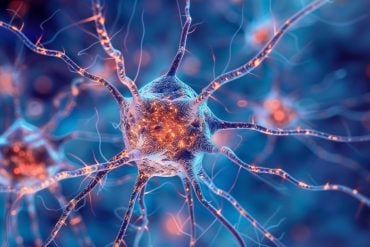Cancer-related cognitive impairment is often referred to as ‘chemobrain’ and anthracycline-based chemotherapy may have greater negative effects on particular cognitive domains and brain network connections than nonanthracycline-based regimens, according to an article published online by JAMA Oncology.
Chemotherapy for breast cancer is often associated with cognitive problems in patients. However, it is unclear whether certain regimens are associated with greater cognitive difficulties than others.
Shelli R. Kesler, Ph.D., of the University of Texas MD Anderson Cancer Center, Houston, and Douglas W. Blayney, M.D., of the Stanford University School of Medicine, California, compared the effects of anthracycline and nonanthracycline chemotherapy regimens on cognitive status and functional brain connectivity in a small study.

The authors used cognitive tests and imaging data from 62 primary breast cancer survivors (average age nearly 55) who were, on average, more than two years off therapy to examine cognitive status and functional brain connectivity. Of the women, 20 received anthracycline-based chemotherapy as part of their primary treatment, 19 received nonanthracycline regimens and 23 did not receive any chemotherapy.
Women treated with anthracycline-based chemotherapy had lower verbal memory, including immediate recall and delayed recall, compared with the other two groups of women. The anthracycline regimens also were associated with lower default mode brain network connectivity, suggesting a decreased efficiency of information processing, according to the study.
Patient-reported outcomes of cognitive dysfunction and psychological distress were elevated in both groups of women treated with chemotherapy compared with patients treated without chemotherapy, the results indicate.
“These results should be considered preliminary given the study limitations of small sample size and retrospective, cross-sectional design, Larger, prospective studies are needed that include pretreatment and posttreatment assessments so that patients’ individual cognitive and neurobiologic trajectories can be evaluated with respect to potential ANTHR [anthracycline]-related neurotoxic effects,” the study concludes.
Source: Laura Sussman – JAMA Network
Image Source: The image is credited to Nicki Dugan Pogue and is licensed CC BY SA 2.0
Original Research: Abstract for “Neurotoxic Effects of Anthracycline- vs Nonanthracycline-Based Chemotherapy on Cognition in Breast Cancer Survivors” by Shelli R. Kesler, PhD and Douglas W. Blayney, MD in JAMA Oncology. Published online December 3 2015 doi:10.1001/jamaoncol.2015.4333
Abstract
Neurotoxic Effects of Anthracycline- vs Nonanthracycline-Based Chemotherapy on Cognition in Breast Cancer Survivors
Importance Chemotherapy exposure is a known risk factor for cancer-related cognitive impairments. Anthracycline-based regimens are commonly used chemotherapies that have been shown to be associated with cognitive impairment and brain changes in clinical studies.
Objective To directly compare the effects of anthracycline and nonanthracycline regimens on cognitive status and functional brain connectivity.
Design, Setting, and Participants In this observational study, we retrospectively examined cognitive and resting state functional magnetic resonance imaging data acquired from 62 primary breast cancer survivors (mean [SD] age, 54.7 [8.5] years) who were more than 2 years off-therapy, on average. Twenty of these women received anthracycline-based chemotherapy as part of their primary treatment, 19 received nonanthracycline regimens, and 23 did not receive any chemotherapy. Participants were enrolled at a single academic institution (Stanford University) from 2008 to 2014, and the study analyses were performed at this time.
Main Outcomes and Measures Cognitive status was measured using standardized neuropsychological tests, and functional brain connectivity was evaluated using resting state functional magnetic resonance imaging with a focus on the brain’s default mode network.
Results The anthracycline group demonstrated significantly lower verbal memory performance including immediate recall (F = 3.73; P = .03) and delayed recall (F = 11.11; P < .001) as well as lower left precuneus connectivity (F = 7.48; P = .001) compared with the other 2 groups. Patient-reported outcomes related to cognitive dysfunction (F = 7.27; P = .002) and psychological distress (F = 5.64; P = .006) were similarly elevated in both chemotherapy groups compared with the non–chemotherapy-treated controls.
Conclusions and Relevance These results suggest that anthracyclines may have greater negative effects than nonanthracycline regimens on particular cognitive domains and brain network connections. Both anthracycline and nonanthracycline regimens may have nonspecific effects on other cognitive domains as well as certain patient reported outcomes. Further research is needed to identify potential methods for protecting the brain against the effects of various chemotherapeutic agents.
“Neurotoxic Effects of Anthracycline- vs Nonanthracycline-Based Chemotherapy on Cognition in Breast Cancer Survivors” by Shelli R. Kesler, PhD and Douglas W. Blayney, MD in JAMA Oncology. Published online December 3 2015 doi:10.1001/jamaoncol.2015.4333







